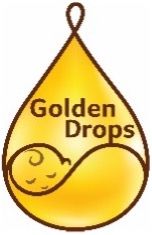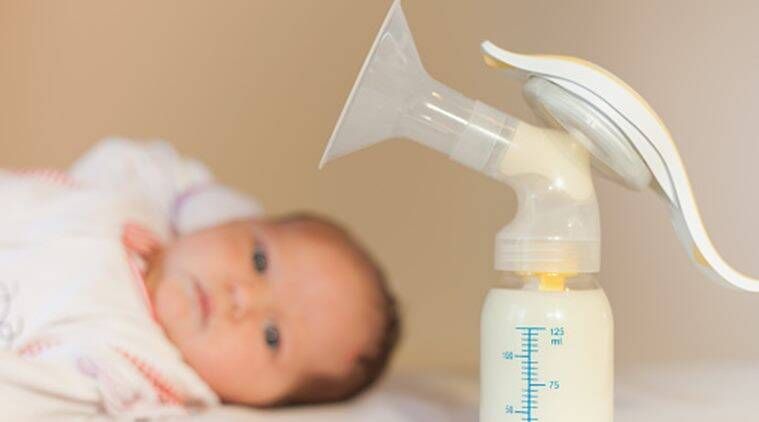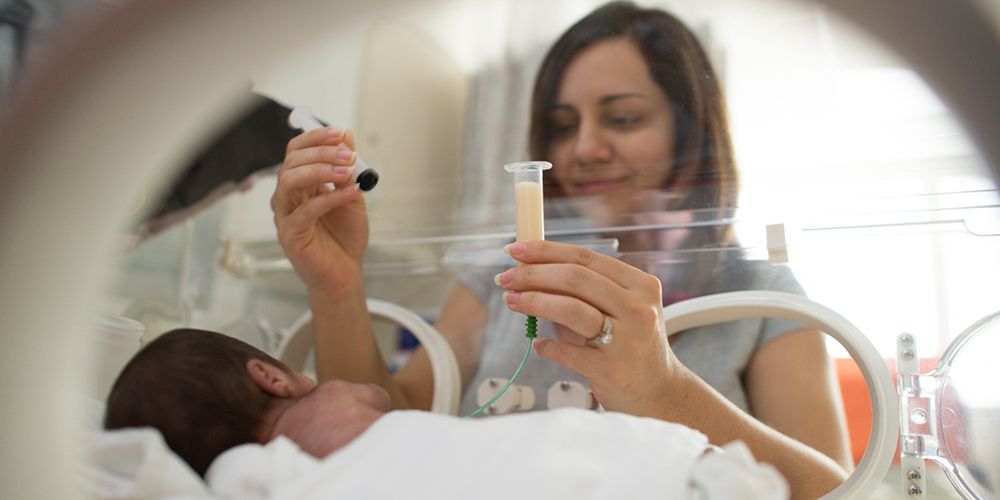Breast Milk for Preterm Infants

You may be reading this because you have a preterm baby, or because you are expecting to deliver your baby before full term and you want to be prepared. Whatever your situation then we hope this information will help to get breastfeeding off to a successful start.
At the Grange University Hospital Neonatal Unit, we are dedicated to supporting you throughout your baby’s time with us. For the best start in life for a preterm baby, breastmilk is essential. GUH is specially built to encourage mothers to breastfeed their little ones. The nursery rooms have been designed to encourage mothers to room in, where you can stay with your little ones while they establish breastfeeding with the support of our staff.
Why Breast milk for Preterm babies?
Over the years, research studies and observation of preterm babies who have had breast milk compared to those who have given formula, we have seen the benefits of breast milk. Many mothers find putting a baby on the breast or expressing milk somewhat awkward, but it is the most natural thing. Just like animals, the women’s breast is specially designed to breast feed. Of course, some women will have difficulty in producing breast milk compared to others. But if possible, giving breast milk to your baby is the best gift you can give your little one.

The Preterm infant body is very immature and not quite ready for the complex chemicals in formula milk. Breast milk is rich in immunoglobulins, hormones, enzymes, nutrients and growth factors especially the colostrum (the first milk). Immunoglobulins are essential in improving the immunity of preterm babies, which cannot be provided through formula. Breast fed babies have decreased risk of infections, especially NEC (Necrotising Enterocolitis), which can be a very serious infection in preterm. It has also been seen to prevent recurrent hospital admissions, improving the development of the brain and its functions as well as preventing problems with eyesight that is associated with prematurity.
Your Premature New born
When you baby arrives there is likely to be a sudden rush of activity as your baby is checked and stabilised. They may be rushed off to the neonatal unit leaving you feeling stranded in the delivery unit. Be kind to yourself. You may feel that starting to express milk is a practical way that you can be involved in their care even when you are apart from each other. There is evidence to show that if you start expressing within the first hour after birth, it can have a long term positive effect on your milk supply. Also, it has been found that the earlier premature babies are started on breast milk the more beneficial it is- ideally within 6 hours of life.
In the early days you need to be stimulating milk production/ expressing your breasts between eight and twelve times in twenty four hours, including at least once at night. This would imitate the normal feeding regime of a baby after birth and help in effective production of breast milk.
Establishing breastfeeding
You may be expressing on your ward (if you are still an inpatient) or on the neonatal unit. Many mothers find that being close to their babies while they are expressing can help to increase the amount that they are able to express. If you are separated from your baby, looking at photos of your baby or smelling something that has been close your little one can help.

If you are expressing on the unit, you may wish to be close to your baby as you do so. Some mothers use screens for privacy. You can ask for these to be provided. You don’t have to use screens if you prefer not to – using scarves or nothing at all is a completely acceptable choice. Do what you feel comfortable with and helps your milk to flow easily. Listening to music may help you to relax and increase your milk production. You can borrow the breast pumps from the unit or choose to buy your own.
Please click here for further advice on how to expressing your milk.
Please click here for to watch a video on how to expressing your milk

Key Points
- Start expressing within a couple of hours after giving birth, even if your baby is having tiny amounts of milk
- Aim to express 8 –10 times in 24 hours, including once at night, particularly in the first couple of weeks
- With each day, the amount of milk you express should increase
- Even if your baby is having tiny amounts now, they will need more as they get bigger
- Ask your nurse or midwife to check how expressing is going
Top tips
Some days will be better than others. The following tips can help boost your milk making hormones.
- Ask the nurse or midwife to check that you are using the best technique if hand expressing; if you are using a pump, check that the funnel size fits you well
- Stay close to your baby when expressing, or have a picture of your baby or a piece of their clothing nearby
- If you can, get someone to give you a nice back rub before your express Close your eyes and imagine gently kissing your baby from their toes up to the top of their head
- Have a big glass of water before you go to bed so you will need to get up to go to the toilet in the night to fit in a night time expression
- Express in clusters (two to three times close together) to give you a bit of space, however don’t leave it longer than five hours between expressions
- If your milk supply suddenly drops, don’t panic. It hasn’t gone away!
- Spending time in skin-to-skin contact with your baby, massaging your breasts or doing something you enjoy will help you relax and your milk will start to flow again. Please click here for further information on the importance of skin to skin contact.

Please click here for further advice from Unicef on supporting love and nurture on the neonatal unit




